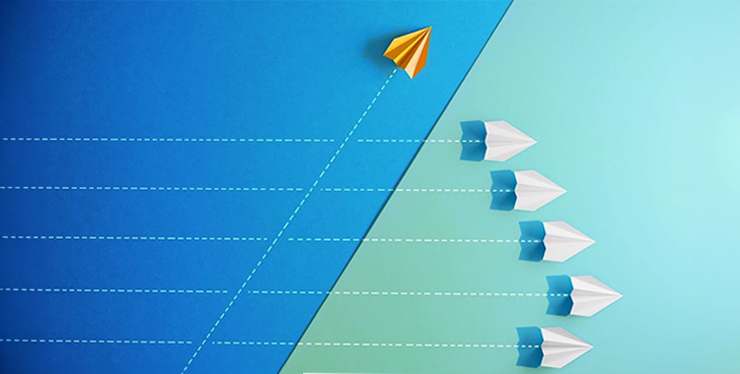Leading in turbulent times webinar series: The ecosystem advantage

This webinar given by IMD’s Mark Greeven, Professor of Innovation and Strategy, appeared live on Tuesday 14th April at 11am CEST.
What are ecosystem practices? And what part of them could you feasibly implement in your company on Monday morning?
During turbulent times, there is a lot to do from focusing on employee safety to identifying new growth engines. Leveraging your partners (building your ecosystem) gives you an extra pair of hands and may also enable you to come out better than you had entered the crisis phase.
Nobody is pretending it is easy to build an ecosystem. Common reasons companies do not collaborate in crises include the fact they often go into freeze mode and the high cost of switching operations if you’re in the manufacturing as opposed to the digital sector (e.g. via a joint product launch). But there are feasible ways of going about partnership building.
Most companies are not organically organised as ecosystems. However, there are mechanisms of a well-structured ecosystem that can be mimicked. Learn more about these and about the need for inter-dependency, for instance through digital coordination.
An ecosystem of partners in turbulent times is an asset for myriad reasons, including the fact it helps you find a collective voice, boosts your resilience and propels you faster through the tunnel of turbulence. It also supports you in efforts to keep focused and can also even help manage costs. Moreover, it increases your chance of staying in sync with your environment.
You’ve heard it before; the sum of the parts is much more than individual parts alone. Likewise, ecosystems make you better and more relevant to what either you or your partner could have done alone.
But partnerships can go beyond just helping you keep the company ticking over, by giving you the competitive edge too. GE, GM, IBM, Disney, Microsoft and Apple were all founded during crises. If you don’t join the partnership trend, then you might find it harder to compete in the long run.
As Professor Greeven says, “If you as a company don’t see new growth engines, I can guarantee you that entrepreneurs are going to be on the lookout for them!”
There is no limit to how big an ecosystem can go. Well-connected oligopolies are being created during and will continue to be created after this crisis. If you don’t join them, you might just find it impossible to later compete with them.
To view all webinars, please visit our Leading in Turbulent Times page here.
Research Information & Knowledge Hub for additional information on IMD publications
The case study delves into strategic transformation and leadership transitions at Unilever since 2009. Unilever has been an industry leader of busi...
The case study examines recent aviation safety concerns at Boeing, focusing on manufacturing issues, leadership decisions and regulatory oversight....
The case is seen through the eyes of the newly appointed supply chain director at a cosmetics company based in Berlin. The general manager has task...
Few Business to Business (B2B) marketplaces have succeeded. Metalshub has successfully combined a software platform as a service, with a marketplac...
The case focuses on Contabilizei, a Brazilian startup providing online accounting services for small and medium-sized enterprises (SMEs). The case ...

Companies that modularize and externalize their best capabilities are in a strong position to seize unexpected opportunities. Prediction is hard. T...
Research Information & Knowledge Hub for additional information on IMD publications
Research Information & Knowledge Hub for additional information on IMD publications
in I by IMD 24 June 2024
Research Information & Knowledge Hub for additional information on IMD publications
Research Information & Knowledge Hub for additional information on IMD publications
Research Information & Knowledge Hub for additional information on IMD publications
Case reference: IMD-7-2457 ©2024
Research Information & Knowledge Hub for additional information on IMD publications
Case reference: IMD-7-2546 ©2024
Research Information & Knowledge Hub for additional information on IMD publications
Research Information & Knowledge Hub for additional information on IMD publications
in MIT Sloan Management Review Summer 2024, vol. 65, no. 4
Research Information & Knowledge Hub for additional information on IMD publications
Research Information & Knowledge Hub for additional information on IMD publications




